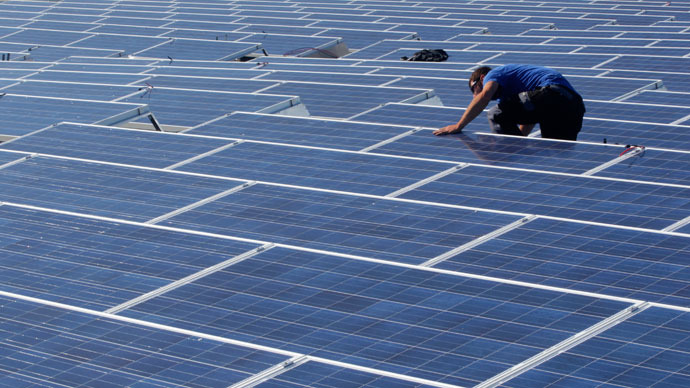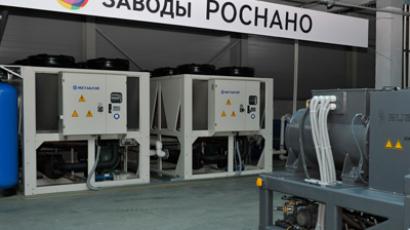Rusnano readies to write off $700mn over solar energy projects

Rusnano has reserved some 21.8 billion roubles (almost $700 million) over risks connected with solar energy projects, according to the company’s financial statement.
Some 65% of this sum is meant for Rusnano’s strategic investment into alternative energy sources. More than half is linked to Rosnano’s joint project with Nitol Solar for the production of polysilicone for solar batteries.
Another 15% of the reserves is meant for fundamentally new technologies in plastic electronics and the Plastic Logic tablet project in particular. The remaining 20% involves a number of other projects, including some in metal working, Rosnano spokesperson Sergey Filippov told Vedomosti.
The issue with Nitol Solar lies in the reduction of the state support for solar energy in Europe (Italy, Spain and Germany) according to Rusnano Deputy Chairman Oleg Kiselev as quoted by Vedomosti daily. Another reason for the failure is global polysilicone overproduction that became obvious after China opened its polysilicone plants.
Since 2009 world prices for polysilicone dropped from $400 to $16 per kilogram. After prices collapsed, production at the Russian Nitol plants has been frozen and half of the staff fired.
According to the data published on the Rusnano website, since 2009 the company has invested 9.4 bilion roubles in the project with Nitol. All this money could be written off said Oleg Kiselev.
According to Anton Usachev, the director of the Russian Association of Solar Energy Enterprises, quoted by Vedomosti, 2011’s over-production had a major impact on the market. He says it was impossible to predict.
The Plastic Logic project faced strategic marketing mistakes with the choice of market niche. The company specializing in production of flexible screens tried to enter the tablet market and failed, Oleg Kiselev admitted. Out of $240 million invested in the Plastic Logic project, Rusnano is expected to write off 40%.














